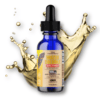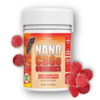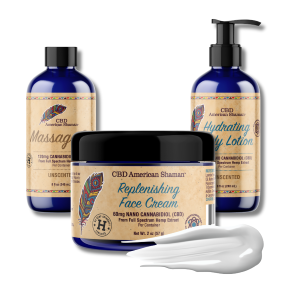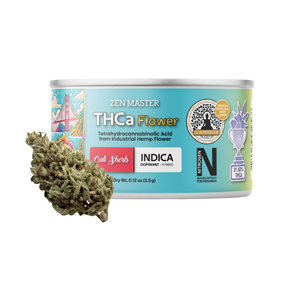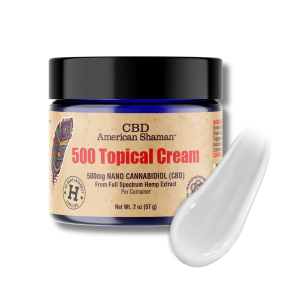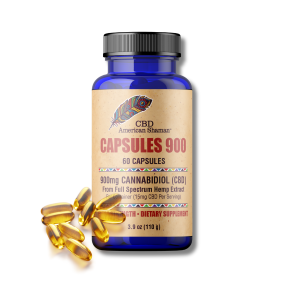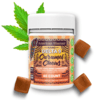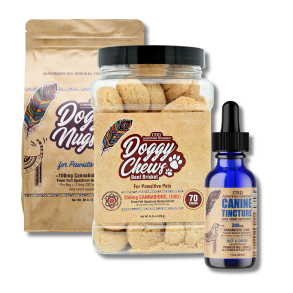
Shop CBN Products
CBN hemp oil from CBD American Shaman is made from high quality, terpene rich pure hemp extract. Choose from CBN water solubles, tinctures, gummies, and more. All of our CBN products are made with non-GMO hemp grown organically in the USA, and powered by our proprietary nanotechnology. We also lab test all of our products to ensure that they meet our strict potency and purity standards. We’re sure you’ll find the perfect CBN product from CBD American Shaman and you’re going to love the results!
What is cannabinol (CBN)?
Cannabinol (CBN) is a naturally-occurring chemical compound found in cannabis plants. Cannabinoids, like CBN, interact with the body's endocannabinoid system (ECS). CBN is typically derived from hemp plants since hemp is legal in the U.S. Hemp plants naturally produce low amounts of CBN, so they have to be manipulated somewhat to create more CBN for extraction. CBNA (cannabinolic acid) is the acidic version of CBN, and when CBNA is exposed to heat it converts to CBN.
So, CBN is created in hemp plants when CBNA is exposed to enzymes, ultraviolet light, oxygen, and heat during certain stages of the plant life cycle. This allows hemp growers to manipulate the plant's life cycle stages to promote the natural production of CBN.
How is CBN made?
CBN naturally forms in hemp plants that are aged, oxidized, exposed to UV light, and decarboxylated. Decarboxylation is the process of heating the plant material to convert the cannabinoid acids into their active form. When the hemp plant is aged, it creates the CBN acid, CBNA (cannabigerolic acid). This acid is then converted to CBN when the plant is heated to a low temperature to activate the CBN without vaporizing the material. To create CBN oil, the CBN is extracted and isolated from the plant material and is then added to a carrier oil.
How does CBN affect the body?
Similar to other cannabinoids, cannabinol works with the body's endocannabinoid system (ECS) to help regulate a wide range of functions through the receptors located throughout the body. These functions include sleep, mood, appetite, nerve function, and more. The receptors in the ECS are called endocannabinoid receptors, which interact with both endocannabinoids that are produced in the body and cannabinoids from cannabis plants. Like CBD, CBN can affect the body by helping to relieve minor discomfort, improve sleep, and promote feelings of relaxation. CBN also interacts with the TRPA-1, TRPV-2, TRPV-3, and TRPV-4 cell receptors. When CBN interacts with these receptors, it can provide a deep sense of relaxation, which may help users sleep better.
What are the benefits of CBN?
CBN is often associated with aiding in sleep and relaxation due to its ability to support the sleep cycle. CBN may be able to help users fall asleep better and improve their quality of sleep. The difference between CBN and other sleep-aids is that it's all-natural and won't cause grogginess in the morning. Not all users will experience these effects because not everyone's body will process CBN in the same way, but many people enjoy the effects CBN has on their sleep cycle.
Can CBN make you high?
CBN does not create a "high" effect in users. The cannabinoid responsible for the high effects of cannabis is THC, and hemp-derived CBN products are legally required to contain less than 0.3 percent THC, which is not nearly enough to create any intoxicating effects at all. CBN simply makes users feel relaxed or sleepy, and does not alter your state of mind in an intoxicating way.
What's the difference between CBD and CBN?
CBD and CBN are both cannabinoids found in hemp plants, but CBD is more prevalent and well-researched than CBN. CBN and CBD aren't intoxicating, meaning neither of them will cause a high in the user. They interact with the body in different ways, but often elicit similar effects for consumers. For example, they both can help to alleviate minor discomfort and support mental positivity. One difference is that CBN is most commonly known to support better sleep, while CBD is commonly known to help with mood and mental positivity. This is due to the different ways they interact with the body's endocannabinoid system. CBN is also known to impact the TRPA-1 to 4 cell receptors, which can impact sleep quality.
Is CBN legal?
The 2018 Farm Bill federally legalized hemp and its derivatives, including hemp extracts containing no more than 0.3 percent THC. CBN oil qualifies as a hemp derivative and doesn't contain more than the legal limit of THC. If you prefer hemp products without these small traces of THC, you can shop our THC free CBD products.

Quality
Safety

Mission

Charity

Innovation

 Store
Locator
Store
Locator

